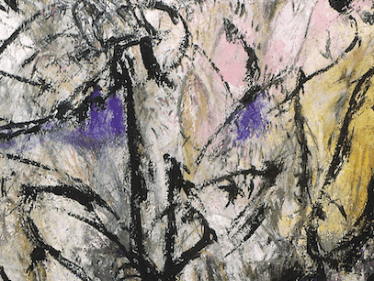Orphée et Eurydice - Schedule, Program & Tickets
Orphée et Eurydice
Tragédie-opéra in three acts (1774)
Music by Christoph Willibald Gluck
Libretto by Pierre-Louis Moline
In French with German surtitles
New production of the Theater an der Wien in the Kammeroper
The Apollonian singer Orpheus has lost his beloved wife Eurydice through the bite of a venomous snake. In a cypress grove shepherds and nymphs complain with him their early death and decorate their grave with flowers. The winds carry Orpheus' lamentations to the gods, who robbed him of his beloved so cruelly. Orpheus is unwilling to submit to his fate and wants to go to the underworld to look for Eurydice there. Then Amor appears and announces to him what Jupiter, moved by his pain, has decided: The singer may descend into the underworld. Should his singing succeed in softening the furies and monsters of Hades, Eurydice will be returned to him. However, he is not allowed to look at Eurydice before they crossed the Styx and did not tell her Jupiter's bid. Happy Orpheus makes under the admonitions of Cupid on the way to the underworld. Furies and guards press him there and deny him access to Hades. However, Orpheus succeeds in appeasing them with a poignant, lamentable lament. The way to the Elysium, to the fields of the blessed, where it is supplied to Eurydice by the shy spirits, is opened to him. Together they enter the upper world through the labyrinthine corridors of Hades. Concerned by Orpheus' averted gaze, Eurydice's doubts arise as to whether it is really her husband she is following through the sinister crevices. She presses him with questions and reproaches and begins to doubt his love, because she can not explain his rejecting, urgent behavior. Worried, Eurydice prefers to die again and return to the tranquility of Elysium as unloved to begin a new, joyless life. In despair, Orpheus breaks the commandment imposed on him and turns to Eurydice, who sinks dead into his arms. Full of pain Orpheus wants to take his life, which is prevented by Amor. Ashamed of the greatness of this love, he brings Eurydice to life again. Happy together, the couple pays homage to the god of love.
Subject to change.
Music by Christoph Willibald Gluck
Libretto by Pierre-Louis Moline
In French with German surtitles
New production of the Theater an der Wien in the Kammeroper
The Apollonian singer Orpheus has lost his beloved wife Eurydice through the bite of a venomous snake. In a cypress grove shepherds and nymphs complain with him their early death and decorate their grave with flowers. The winds carry Orpheus' lamentations to the gods, who robbed him of his beloved so cruelly. Orpheus is unwilling to submit to his fate and wants to go to the underworld to look for Eurydice there. Then Amor appears and announces to him what Jupiter, moved by his pain, has decided: The singer may descend into the underworld. Should his singing succeed in softening the furies and monsters of Hades, Eurydice will be returned to him. However, he is not allowed to look at Eurydice before they crossed the Styx and did not tell her Jupiter's bid. Happy Orpheus makes under the admonitions of Cupid on the way to the underworld. Furies and guards press him there and deny him access to Hades. However, Orpheus succeeds in appeasing them with a poignant, lamentable lament. The way to the Elysium, to the fields of the blessed, where it is supplied to Eurydice by the shy spirits, is opened to him. Together they enter the upper world through the labyrinthine corridors of Hades. Concerned by Orpheus' averted gaze, Eurydice's doubts arise as to whether it is really her husband she is following through the sinister crevices. She presses him with questions and reproaches and begins to doubt his love, because she can not explain his rejecting, urgent behavior. Worried, Eurydice prefers to die again and return to the tranquility of Elysium as unloved to begin a new, joyless life. In despair, Orpheus breaks the commandment imposed on him and turns to Eurydice, who sinks dead into his arms. Full of pain Orpheus wants to take his life, which is prevented by Amor. Ashamed of the greatness of this love, he brings Eurydice to life again. Happy together, the couple pays homage to the god of love.
Subject to change.
There are no products matching the selection.






